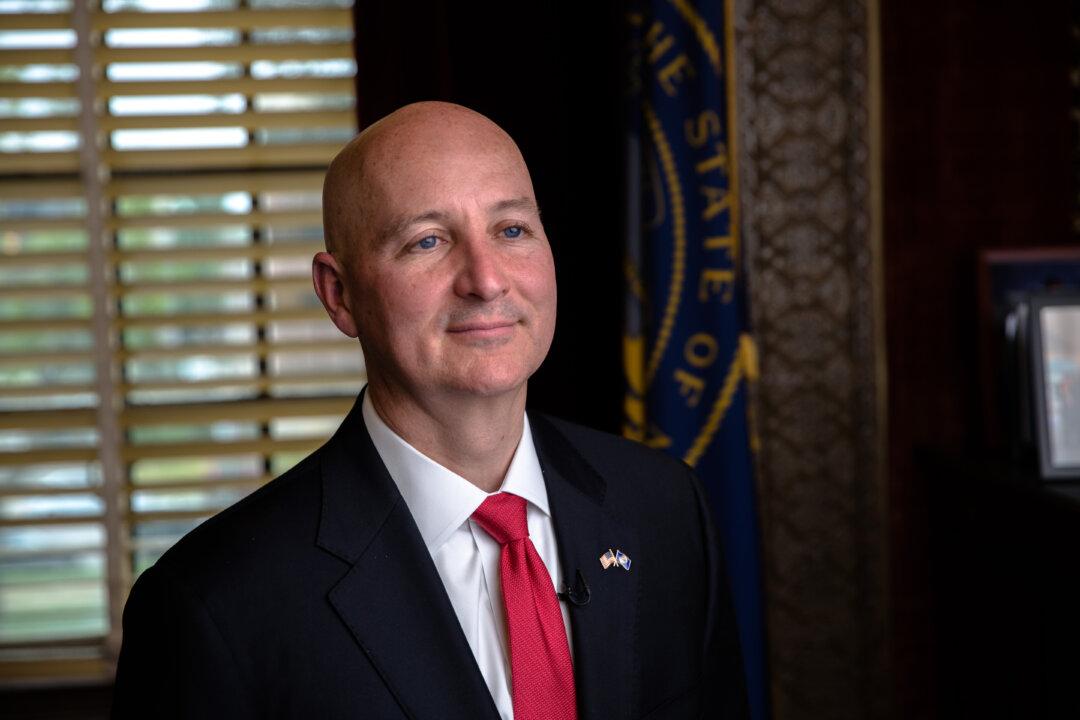Nebraska’s governor said on Oct. 7 that he may end up being appointed to the U.S. Senate to fill a seat that would become vacant if Sen. Ben Sasse (R-Neb.) ends up resigning to become the president of the University of Florida.
Gov. Pete Ricketts, a Republican, did not rule out replacing Sasse but did say he would not appoint himself to the position.





